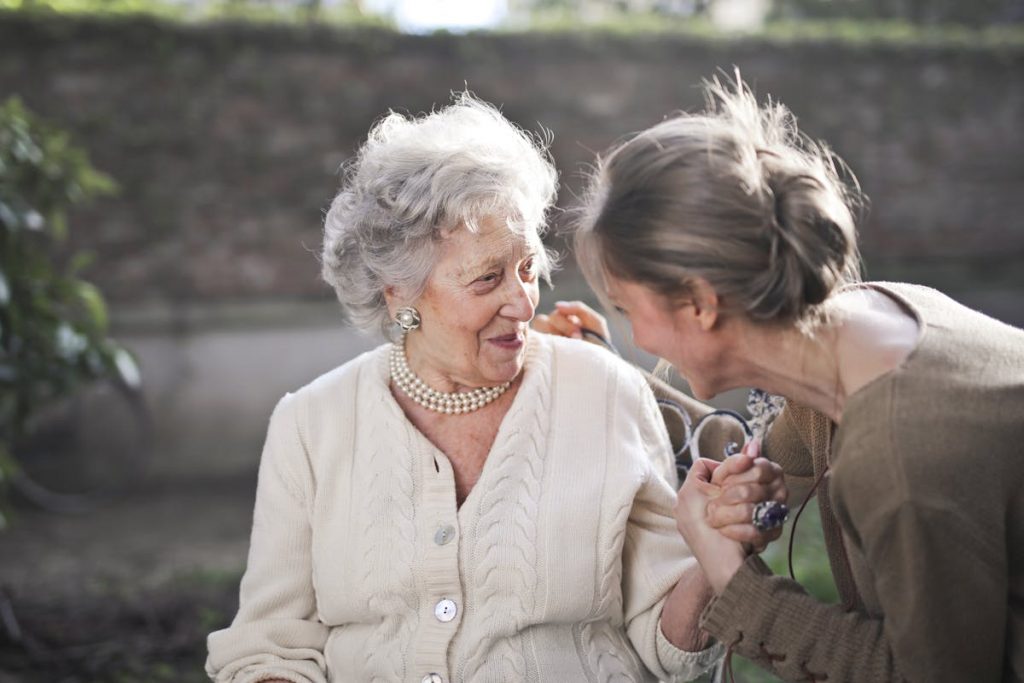- Educate yourself about the condition of the elderly loved one to anticipate and fulfill their needs.
- A detailed care plan is crucial, emphasizing medication, nutrition, physical activity, and medical appointments.
- Home modifications and professional assistance can significantly enhance the comfort and safety of aging loved ones.
- Self-care for caregivers is essential to maintain personal well-being and provide quality care for the elderly.
As your loved ones age, it is natural for them to experience a decline in their physical and mental health. Chronic impairments such as Alzheimer’s disease, Parkinson’s disease, or stroke can make it difficult for elderly loved ones to live independently.
As a caregiver, it is your responsibility to provide the best care possible to ensure that they are comfortable and happy in their golden years. This blog will discuss essential tips on how to care for your elderly loved ones with chronic impairments.
Educate Yourself About Their Condition
The first step in caring for your elderly loved one is to educate yourself about their chronic impairment. Understanding the symptoms, treatment options, and potential complications associated with their condition is essential.
This knowledge will help you anticipate their needs and ensure they receive the appropriate care. You can also join support groups or attend educational seminars to learn more about their condition and connect with other caregivers facing similar challenges.
Develop a Care Plan
After educating yourself about your loved one’s condition, it is essential to develop a care plan that addresses their specific needs. The care plan should include information about these four items:
Medication Schedules
Medication is a crucial part of managing chronic impairments, and it is vital to keep track of the medications your loved one needs to take. Develop a schedule that includes the names of their medication, dosages, and when they need to be taken.
Doctor Appointments
Regular visits to their healthcare provider are necessary to monitor their condition and adjust treatment plans as needed. Keep track of their doctor appointments and ensure that they attend them.
Dietary Restriction

Certain chronic impairments may require dietary restrictions, such as limiting salt intake or avoiding certain types of food. Make sure to understand these restrictions and plan meals accordingly.
Physical Therapy or Exercise Routine
Physical therapy or exercise can help manage specific chronic impairments, so it is essential to include them in your care plan. Consult with their healthcare provider for appropriate exercises and develop a routine that fits their capabilities.
Having a detailed care plan will help you stay organized and ensure that your loved one receives consistent care. You can also share the care plan with other family members and caregivers so everyone is on the same page.
Consider Home Modifications
If your elderly loved one has mobility issues or other impairments that affect their ability to live independently, consider making modifications to their home. Installing grab bars in the bathroom or adding wheelchair ramps can make a significant difference in their daily life. Consult with an occupational therapist or home healthcare professional for advice on how best to modify the home.
Take Care of Yourself
Caring for an elderly loved one can be challenging both physically and emotionally. It is essential to take care of yourself by taking breaks when needed and seeking support from family members or caregiver support groups.
Remember that self-care is not selfish; it is necessary for your well-being and the quality of care you provide. This includes getting enough sleep, eating well, and participating in activities that bring you joy. Make sure to also schedule regular check-ups with your own healthcare provider to monitor your health.
Seek Professional Help
Caring for an elderly loved one with chronic impairments can be overwhelming, and sometimes professional help may be necessary. Consider hiring a home health care professional to assist with tasks such as bathing, dressing, or administering medication.
They can also provide companionship and help alleviate some of the caregiving responsibilities. This can also provide you with a much-needed break and peace of mind, knowing that your loved one is in good hands. Additionally, professional help can ensure that your loved one receives the best care possible, enhancing their quality of life.
Tending to an elderly loved one with chronic impairments requires a multifaceted approach, comprehensive planning, and a compassionate outlook. Education about their condition, developing a tailored care plan, home modifications, taking care of yourself, and knowing when to seek professional help are paramount steps towards providing the best possible care.
Always remember that caregiving is an act of love and kindness. While it can be demanding, the comfort and happiness it brings to your loved ones in their golden years can be incredibly rewarding. If you find yourself overwhelmed, reach out—help is available. By ensuring your own well-being, you can create a nurturing environment for both you and those in your care.
